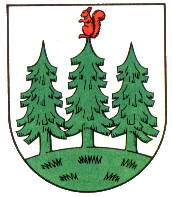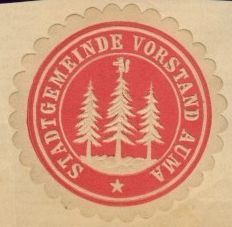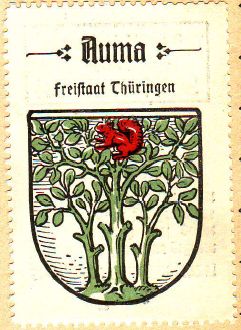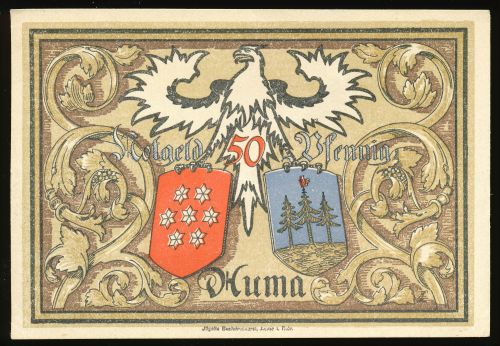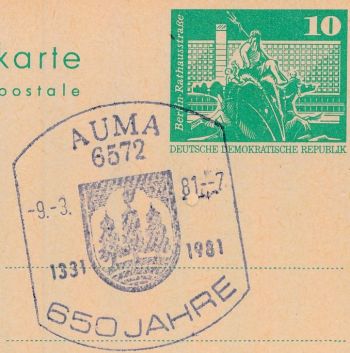Auma: Difference between revisions
Knorrepoes (talk | contribs) m (Text replacement - "{{de1}}↵" to "") |
Knorrepoes (talk | contribs) m (Text replacement - "{{media}}" to " {{de1}} {{media1}}") |
||
| Line 34: | Line 34: | ||
{{ | |||
{{de1}} | |||
{{media1}} | |||
[[Civic Heraldry Literature - Germany|'''Literature''']]: Hupp, O: [[Kaffee Hag albums]], 1920s; Benzing et al, 1984 | [[Civic Heraldry Literature - Germany|'''Literature''']]: Hupp, O: [[Kaffee Hag albums]], 1920s; Benzing et al, 1984 | ||
Revision as of 12:34, 26 December 2022
This page is part of the German heraldry portal Deutsche Wappensammlung |
Heraldry of the World |
|
German heraldry:
|
Selected collector's items from Germany:
|
AUMA
State : Thüringen
District (Kreis) : Greiz (until 1994 Zeulenroda)
Additions : 1994 Krölpa, Muntscha, Wenigenauma, Zickra
Incorporated into: 2011 Auma-Weidatal
| German |
In Silber auf grünem Berg drei grüne Tannen, auf der Krone der mittleren ein rotes Eichhörnchen. |
| English | No blazon/translation known. Please click here to send your (heraldic !) blazon or translation |
Origin/meaning
The arms are known since the first half of the 15th century. Originally the pine trees were beeches. In the 17th century the number of trees was often reduced to a single tree with a squirrel in the top (see f.e. also Vimmerby in Sweden). The actual meaning of the arms is not known. The present colours are derived from the money issued in Auma in 1921, as no historical colours were known. Those showed a blue field, which was not heraldically correct (see below), the field was therefore changed to silver.
| Seal from around 1900 |
The arms by Hupp in the Kaffee Hag albums +/- 1925 |
| Local emergency money from 1921 |
Postal cancellation 1981 |
Literature: Hupp, O: Kaffee Hag albums, 1920s; Benzing et al, 1984


